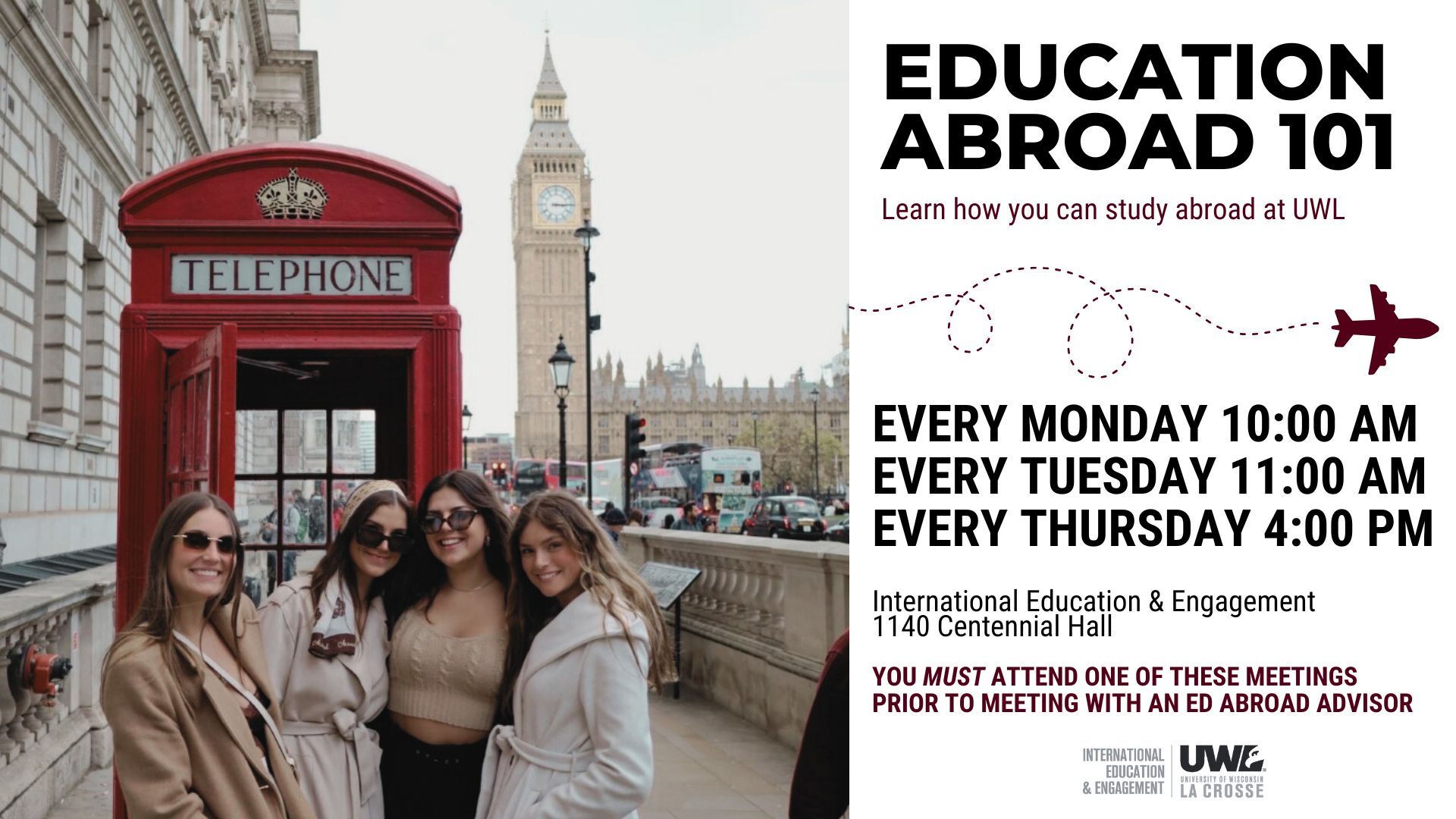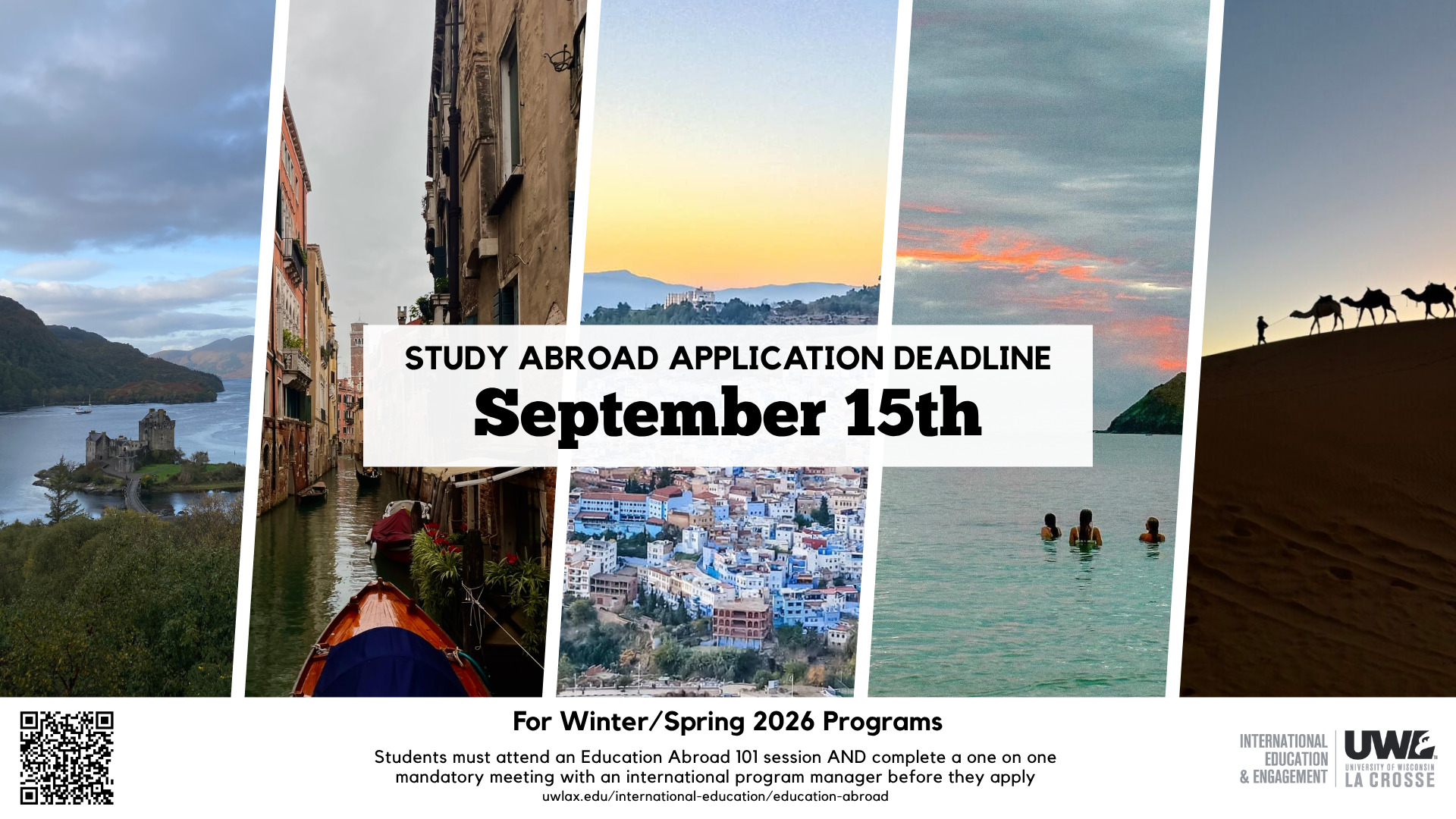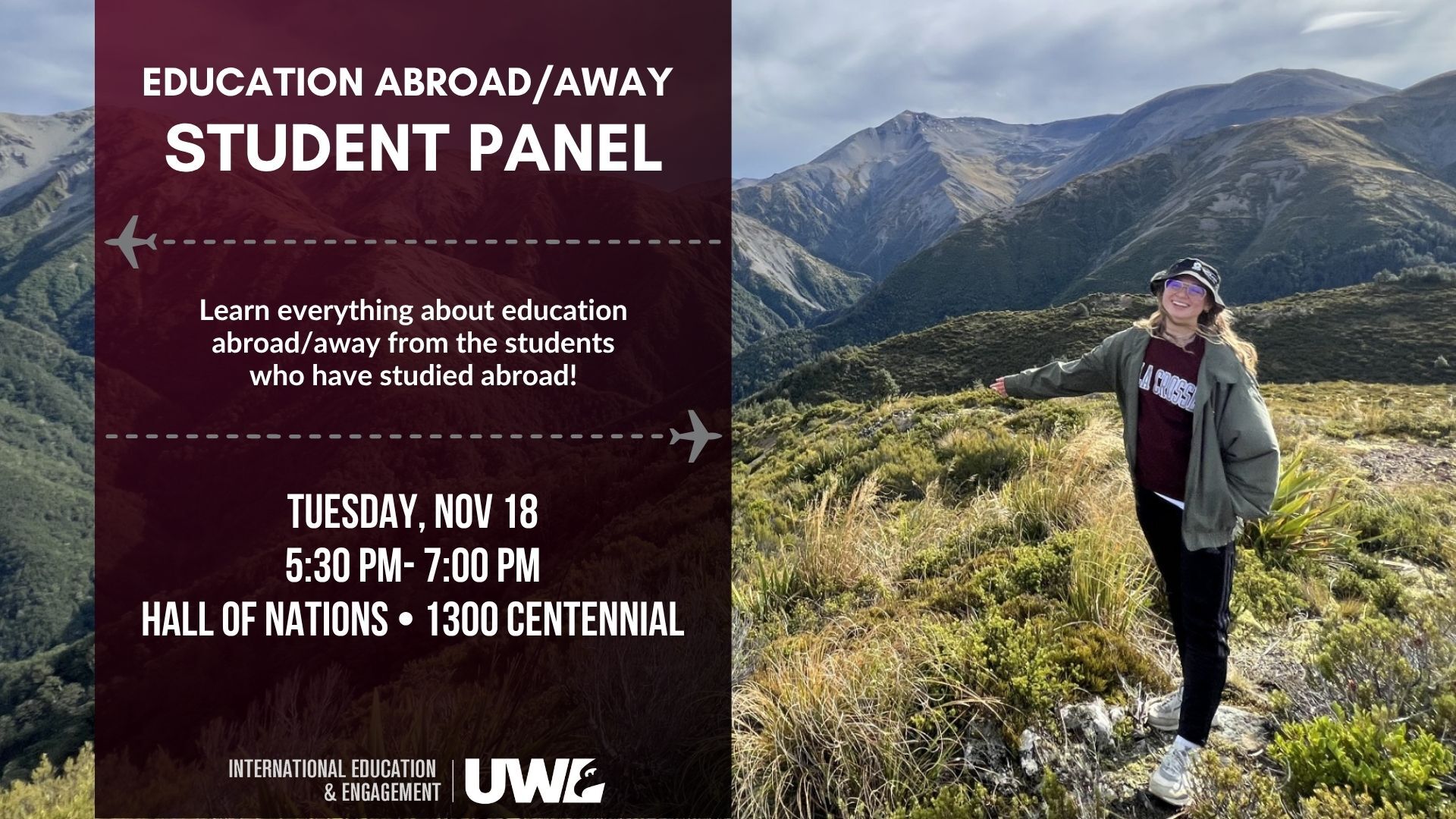Collaborative Online International Learning (COIL)
A page within International Education & Engagement
Collaborative Online International Learning (COIL)
WHAT IS COIL?
COIL (Collaborative Online International Learning) is a teaching methodology developed at the State University of New York in 2004.
It combines course content with a collaborative, international, online dimension.
- Collaborative in terms of design and teaching (teachers) as well as in terms of teamwork and learning (students)
- International because it takes place between two countries, generating a space for intercultural learning
- Online because it happens via the Internet (where the interaction can be synchronous or asynchronous.
The central focus of COIL is learning and the student, who has a collaborative "international" experience in a variety of contexts, thereby fostering the development of global skills without ever leaving home.
The goal of COIL at UWL is to provide students with the opportunity to engage with international colleagues on projects of mutual educational importance without physically traveling to another country. Ultimately, the goals of COIL experiences are to enhance the internationalization of the curriculum at UWL and help students obtain the student learning outcomes of a global emphasis.
Collaborative Online International Learning (COIL) at UWL should involve:
- course-based collaborative outcomes
- students from UWL working with students from a different country
- outcomes or projects co-developed between a UWL instructor with one or more instructors from another country
- a project or course module that spans at least three weeks of a course (presuming typical semester length)
- the format of the collaborations (including whether achieved in a synchronous or asynchronous manner) is up to the instructors.
- forms of interaction include online discussion groups, videoconferences, and online workgroup projects
- the international partner can be arranged by an individual faculty member and/or with the help of International Education & Engagement (IEE).
- outcomes focus on student-to-student interaction and the opportunity to learn together with those who have perspectives different from our own.
If faculty are interested in additional training and partner matches, please visit the ISEP COIL Academy to apply for one of their bi-yearly training. UWL is an ISEP Member. This exclusive member benefit is available free of charge to faculty from ISEP Member and Affiliate institutions.
Expanding boxes
Example COIL projects at UWL
2021-2022: UWL COIL projects
| Faculty Name | DEPT | Course | Partner Country |
| Ascencio, Christine | MGT | MGT 360 Global Perspective on Business | X-culture https://x-culture.org/ |
| Epstein, Ann | DES | ECE 440 Language and Literacy Development of Young Children | Norway |
| Gorres, Kelly | CHEM | CHM 325 Fundamental Biochemistry | Germany |
| Hay, Shelley | GCL | GER 321 German Civilization: 1989-Present | Germany |
| Kil, Namyun | RMTR | RTH 420/520 Nature and Forest Therapy | South Korea |
| Martin Gomez, Antonio | GCL | SPA 381 The Sounds of Spanish | Ecuador |
| Ochoa Campo, Astrid | GCL | SPA 369 Topics in Hispanic Cultures | Colombia |
| Peacock, Elizabeth | ARC/ANT | ANT 375 Language, Power, and Inequality | Ukraine |
| Sultzbach, Kelly | ENG | ENG 204: British Literature II | UK |
Additional information regarding 21-22 COIL projects at UWL
pre 2021
Dr. Heather Linville (DES/TOEFL) completed the first funded COIL project creating a collaboration with a Japanese university. She has provided the following description and access to her materials. These materials are not examples of the UWL COIL grants - they are an example of a UWL COIL project provides to be of use to instructors interested in a a description of successful UWL project funded through a different external agency mechanism.
Sample international collaborative projects from other universities
COIL Example courses (hosted by the Collaborative Online International Learning Center @SUNY)
University of North Carolina at Chapel Hill - includes COIL grant samples
How to COIL in your classroom?
How can you use COIL in your classroom?
WE RECOMMEND ORGANIZING A COIL ACTIVITY A SEMESTER IN ADVANCE.
Are you unsure about whether you can implement COIL in your classroom?
Ask yourself the following questions:
- Would you be interested in internationalizing the curriculum of your subject?
- Are there any sections within your subject in which students can work as a team?
- Is there an aspect of your subject that would be interesting to compare with what happens in another country?
- Is there any aspect of your subject that could be studied from the point of view of sustainable development goals?
- Are there any sections for which it would be interesting to have an intercultural perspective?
- Do you know that within your own subject you can help URV students to achieve global competencies without the need to do mobility stay?
- If you've answered yes to any of these questions, go for it! COIL is for you!
WHO CAN I COLLABORATE WITH?
If you don't have a contact in mind with whom you could develop a COIL activity, UWL International Education & Engagement can help you.
- We can search among our international partners.
- If you have a special interest in a specific institution, we can contact them and help you establish the academic contact you're looking for.
Once we find someone for you to work with, we'll arrange a virtual meeting with the potential partner to get to know one another and discuss possibilities.
UWL CATL can assist in the configuration and structure of the course, while the activities are developed and agreed upon between the teachers.
REMEMBER:
- A COIL activity is framed within a subject and does not need validation.
- The average duration of a COIL activity is 4 to 12 weeks, and the teachers involved can freely decide how to assess it.
- It is recommended that the whole class participates.
COIL Resources
COURSE RESOURCES
- SUNY COIL Student Guide
- Cross Cultural Communication & Collaboration - SUNY COIL
- Project Zero's Thinking Routine Toolbox













